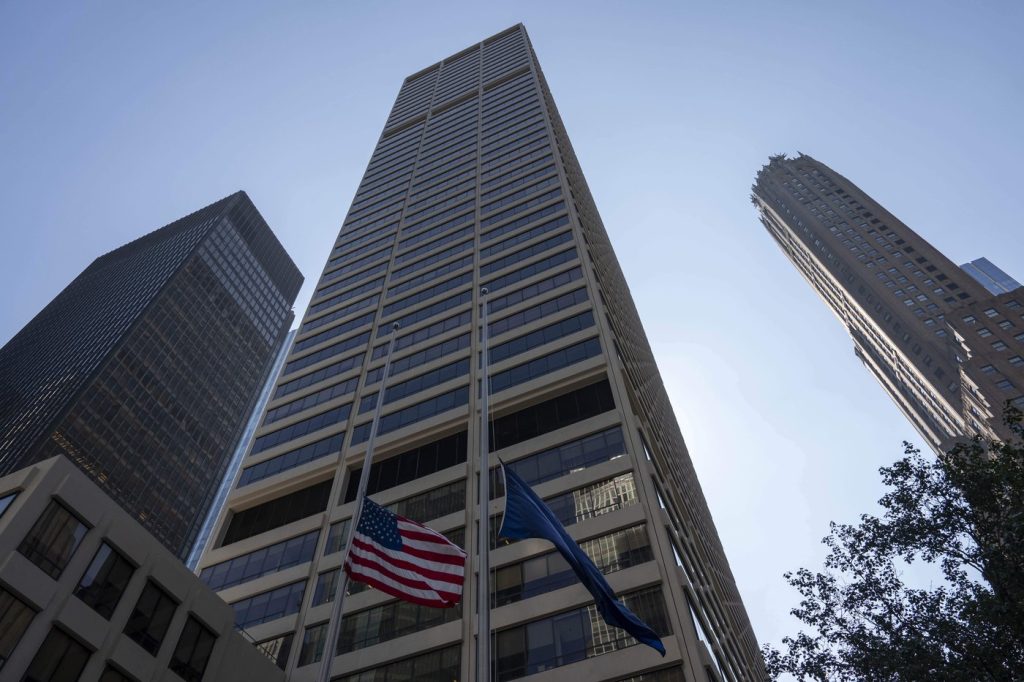On Monday, U.S. District Judge Paul A. Engelmayer ruled against the release of grand jury testimony that contributed to sex trafficking charges against Ghislaine Maxwell, a close confidante of the late Jeffrey Epstein. The judge's decision suggested that the Trump administration’s push for transparency through the unsealing of these documents was misleading and aimed at creating an “illusion” of openness rather than genuine disclosure.
Federal law typically restricts the release of grand jury materials, and Engelmayer emphasized that making such documents public without substantive justification was a negative move. In his ruling, he criticized the Justice Department’s assertion that releasing the transcripts could provide new insights into Epstein's and Maxwell's crimes, labeling that argument as “demonstrably false.”
Engelmayer stated that after reviewing the grand jury transcripts, it would be evident to anyone familiar with Maxwell's 2021 sex trafficking trial that the documents offered “next to nothing new,” leading the public to feel disappointed and misled. He noted that the transcripts did not identify other individuals involved in sexual contact with minors, offer any new details about clients of Epstein or Maxwell, or reveal undisclosed methods of their crimes. Moreover, the materials failed to disclose new locations of criminal activities, sources of wealth, or details regarding Epstein's death.
Engelmayer suggested that public access to these transcripts might ultimately expose the Justice Department’s claims as disingenuous. He contended that members of the public, upon recognizing the lack of new information in the Maxwell grand jury materials, might conclude that the government’s motion for unsealing was not about transparency but rather a diversion from substantial issues.
The decision was a significant setback for former President Donald Trump, who has been vocal about wanting the release of the transcripts to dispel rumors regarding his past ties to Epstein, who died in an apparent suicide in jail in 2019. Trump had previously campaigned on the promise of releasing Epstein-related files, but faced backlash when the limited documents provided by his Justice Department yielded few significant revelations.
In light of the ruling, Florida lawyer Brad Edwards, representing numerous Epstein accusers, expressed his agreement, stating that most victims aim to safeguard their anonymity, noting that the grand jury materials do not possess much evidentiary value.
Maxwell, who is currently serving a 20-year prison sentence for her role in Epstein’s abuse of underage girls, chose not to comment through her lawyer, Bobbi Sternheim. Meanwhile, the Justice Department has not responded to requests for comments regarding the ruling and its implications.
The case surrounding Epstein has resurfaced in public discourse, reigniting debates about transparency and accountability several years after Epstein's previous legal troubles, which included serving time and registering as a sex offender following a 2008 plea deal in Florida. Throughout the years, conspiracy theories regarding Epstein's death and the involvement of powerful individuals have proliferated, with Trump's allies even suggesting potential cover-ups to protect influential figures connected to Epstein.
With increasing pressure surrounding the Epstein saga, the Justice Department's second-in-command, Todd Blanche, conducted interviews with Maxwell, indicating a serious attempt by the Trump administration to probe for additional evidence of wrongdoing. Additionally, the Republican-led House Oversight Committee has subpoenaed documentation related to Epstein and is set to conduct interviews with notable figures, including former President Bill Clinton.
Despite the ruling on Maxwell's grand jury transcripts, it does not affect the plethora of other materials held by the Justice Department, with many documents kept under seal to protect victim identities. A federal judge in Florida previously denied a request to release grand jury documents from investigations conducted between 2005 and 2007.
Maxwell, who is actively appealing her conviction, is reported to have opposed the unsealing of the grand jury documents.












